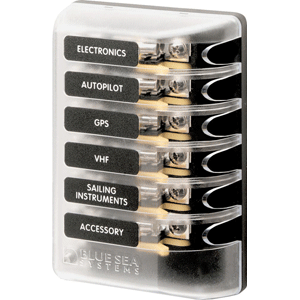Marine Electrical Systems: Ensuring Safe and Reliable Power on the Water
Introduction
Marine electrical systems are the lifeline of any boat, providing power for navigation, communication, lighting, and essential equipment. Proper understanding and maintenance of marine electrical systems are crucial for boating safety and enjoyment. In this comprehensive guide, we will explore the key components of marine electrical systems, best practices for installation and maintenance, and tips for troubleshooting common issues.Batteries and Charging Systems
Batteries
Boat batteries are the primary source of electrical power. Here are some important considerations:- Choose marine-grade batteries specifically designed for the marine environment.
- Select the appropriate battery type (e.g., starting, deep-cycle, or dual-purpose) based on your power requirements.
- Install batteries in a well-ventilated and secure location to prevent exposure to moisture and vibration.
Charging Systems
Proper charging systems are essential for maintaining battery health and ensuring reliable power. Consider the following:- Install a marine battery charger that matches the battery type and capacity.
- Use a charger with multiple charging stages (bulk, absorption, and float) to optimize battery performance.
- Regularly check and maintain battery connections to ensure efficient charging.
Wiring and Circuit Protection
Wiring
Proper wiring is crucial for safe and efficient electrical operation on a boat. Follow these guidelines:- Use marine-grade tinned copper wire to resist corrosion.
- Choose wire sizes based on the current capacity and length of the circuit.
- Route wiring away from high-heat areas, moving parts, and sharp edges.
- Protect wiring with conduit, loom, or heat-shrink tubing for added safety.
Circuit Protection
To safeguard electrical components and prevent electrical fires, use appropriate circuit protection:- Install circuit breakers or fuses in each circuit to protect against overcurrent.
- Ensure circuit protection devices are properly sized for the load they are protecting.
- Label circuit breakers or fuses for easy identification during troubleshooting or maintenance.
Grounding and Bonding
Grounding
Proper grounding is essential for safety and effective electrical operation. Consider the following:- Connect the boat's electrical system to a grounding system consisting of a grounding plate or through-hull.
- Ensure all AC electrical circuits are properly grounded.
- Regularly inspect grounding connections for corrosion and tightness.
Bonding
Bonding helps prevent galvanic corrosion and ensures electrical continuity throughout the boat:- Bond all metal components, such as through-hulls, fittings, and underwater metals, together.
- Use heavy-gauge wire and appropriate bonding terminals to create a continuous bonding circuit.
- Maintain and regularly check bonding connections for corrosion and secure attachment.
Troubleshooting Common Electrical Issues
Blown Fuses
If a fuse repeatedly blows, follow these steps:- Disconnect the equipment or circuit that is causing the fuse to blow.
- Inspect the wiring and connections for any signs of damage or short circuits.
- Replace the fuse with the correct rating and test the circuit.
Battery Drain
Excessive battery drain can be caused by various factors. Follow these troubleshooting steps:- Disconnect all loads from the batteries.
- Measure the battery voltage and monitor it over time.
- If the voltage drops significantly, use a multimeter to check for excessive current draw from individual circuits or equipment.
Intermittent Power
If you experience intermittent power issues, consider the following:- Check for loose or corroded connections.
- Inspect wiring for any signs of damage or chafing.
- Use a multimeter to test voltage at various points in the system to identify potential weak connections or faulty components.





















